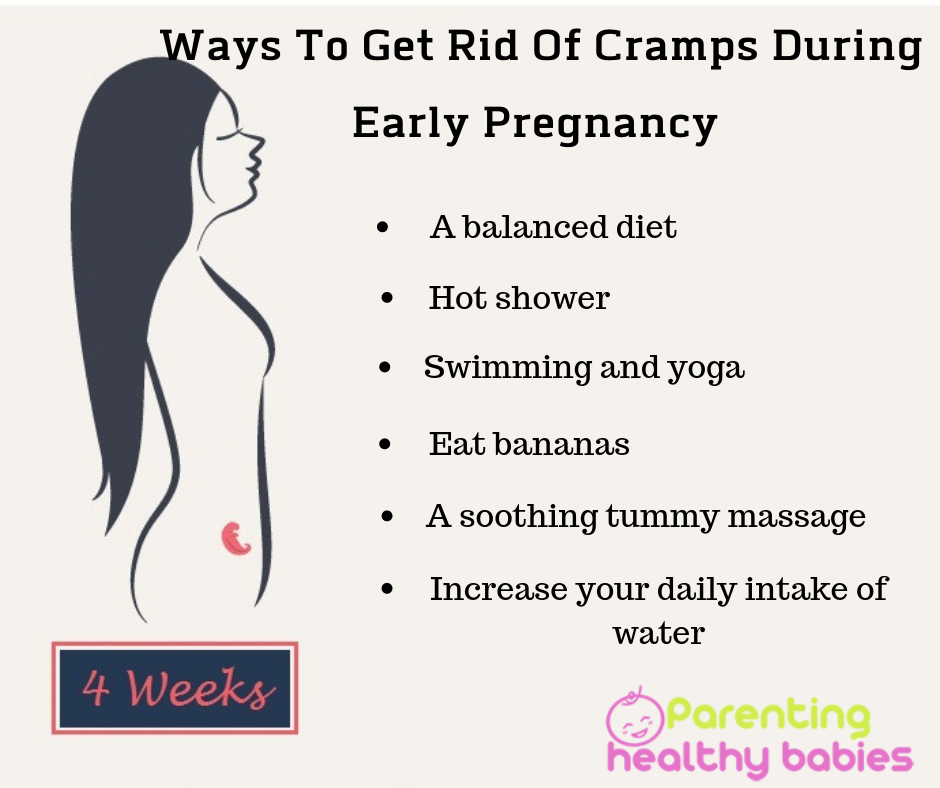Cramps in the first few weeks of pregnancy are a common occurrence. In pregnant women, there is no cause of concern with light cramping as it is bound to fade away without care or management. Occasionally cramping may point to some pregnancy complications, so getting checked by a GP would be great.
This is an anxious time for women who have had a history of miscarriages or pregnancy complications. Do remember that each pregnancy is unique and incorporating healthy habits and making changes to your lifestyle would ensure a healthy pregnancy.
What do cramps during early pregnancy reveal?
A light level of cramping is similar to pain during periods, where a heavy movement is witnessed in pelvis and the uterus is contracting. It is felt on a particular side more than the other. Sometimes cramping is felt when you need to stand for long a duration of time. With pressure levels on your abdomen rising, accompanied by bouts of laughing, sneezing or coughing, cramps become visible.
Read More: 5 Herbs For Strengthening The Uterus
Pregnant women are known to feel cramps in varied ways. It could be a light to a sudden twist of muscles. They could term it as an annoyance, and many expressions are using to highlight this sensation. For health care experts, an equivalence of cramps at early stages of pregnancy is an indication of pressure put on the uterus.
A lot of changes are taking place, not because it is the need, but to prepare you for the months ahead. A certain degree of cramping is an inevitable part of the process.
Though it is not easy to tolerate, but being aware of the causes will help you to manage it in a better way.
The worrying signs?
For a lot of us, cramping is normal, but there are signs of worry as well. It could be at a naïve stage of miscarriage. If it is inevitable, there is little on your behalf that can be done in preventing it. On an occasional basis, cramping would indicate that the fertilized egg has not made its way into the uterus but jostled down elsewhere in the pelvis region. It could be in one of the fallopian tube and it could increase chances of an ectopic pregnancy.
Close to 25 % of women experience cramps in the first few weeks of pregnancy and around 10 % are prone to miscarriage. It is a common scenario for a woman to experience miscarriage in the first 4 weeks of pregnancy. It does occur by chance and does not show any health problem, as next time they can deliver a healthy baby without any treatment.
When are the cramps going to stop?
Improvement is expected once uterus enlarges and bones are in a better space to support the pelvis. Till that point muscles or ligaments need to stand the added weight and they could become fatigued. It is better to find out your due date and when the cramps started. It could pinpoint reasons of cramps during the first few weeks of pregnancy?
Is there any need to be checked?
- If you are worried or need any form of reassurance
- There is spotting or vaginal bleeding and needs to be stopped on an immediate basis
- You are not feeling well
- Pregnancy symptoms become less visible
Home remedies to stop cramping during early pregnancy?
- A balanced diet rich in vegetables, salads or fruits may reduce the frequency of cramps
- A mineral supplement which is going to provide you with right dose of nutrients. Do consult your doctor before consumption of any supplements.
- Stay as active as can. Indulge in exercises like swimming, yoga or stretching would prevent cramps becoming severe.
- A soothing tummy massage, a hot shower and removal of constrictive or tight clothing would be great.
- Increase your daily intake of water and avoid starchy or highly processed foods. Pregnancy is a time when you need to keep constipation at bay. So avoid foods rice, white bread and pasta the prime foods responsible for it.
- While sitting, use a low stool or foot rest to support your feet. Your legs should be low on the floor which improves blood circulation.
- Do not stand for prolonged periods of time and try to sleep by your side as much as possible.
- Eat bananas or raisins that are vital sources of potassium and increase your intake of water and calcium during this stage.
- Having multiple smaller means and lower back massage can also be helpful.
Read More: 5 Reasons For Pelvic Pain During Pregnancy
A combination of all these factors does keep cramping at bay. However, if the pain is more severe, it would be prudent on your part to lie down and take some rest. If you feel symptoms increase, then get in touch with your health care provider as some of the potential danger signs includes excessive bleeding or severe pain in the region.
So cramping at 4 weeks of pregnancy could pose a problem if the situation is not handled properly. Being aware of what are the causes of cramps and when to seek help is the key.













